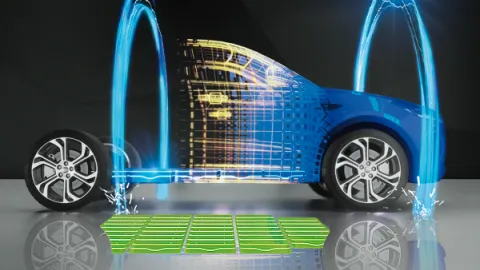
Thermal management is a challenging topic for battery electric vehicles (BEVs). The operational range of electrical components, such as the battery, inverters and e-motors, are relatively small compared to conventional propulsion systems. Thermal management is also safety relevant because of the possible and unexpected derating effects which lead to reduced acceleration capabilities, as well as possible thermal events and pack runaway/venting.During this 60-minute webinar, the benefits of efficient battery thermal management are shown in detail, as a cell’s health, power availability and driving range strongly depend on it. Nowadays, the topic is becoming increasingly important as lower charge times, and thus higher charge power, are critical factors in customer acceptance of BEVs.In fact, fast charging scenarios with charge power greater than 100kW lead to huge heat rejections, which need to be efficiently extracted from the thermal system. On the other hand, the development of e-powertrain systems requires the consideration of important aspects such as simplicity (packaging, assembly) and costs, without neglecting cooling performance and safety (how it behaves in the case of an incident).Today there is a gap between simulation and testing. This is especially true for thermal management. To frontload thermal management tasks on testbeds requires dynamic conditioning units and accurate simulation models.By connecting simulation and testing, you get much closer to reality. Without such a connection, components are only tested with constant coolant temperatures and volume flows. As a result, the behavior of the unit under test (UUT) does not correspond to that in the real vehicle and, for example, derating effects caused by overheating of the battery are not accurately reflected.Dr. Christian Mayr, Project Manager Integrated and Open Development Platform at AVL and Dr. Armin Traußnig, Lead Engineer Thermal and HVAC System Simulation at AVL, discuss the development of thermal management.AVL cordially invites you to join this webinar on June 26, 2019.Register now and get in contact with our experts!
Watch now
Meet our experts who are the presenters of this webinar.